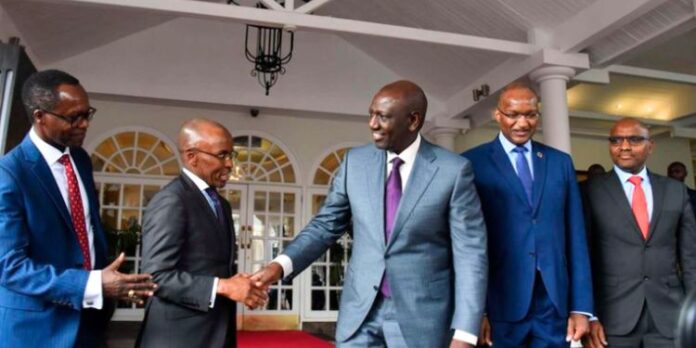Rising energy costs and increasing global trade barriers have dampened the economic outlook among top corporate executives in Kenya, with many CEOs expressing concern over the country’s near-term business environment.
According to a new survey conducted by the Kenya Private Sector Alliance (KEPSA), optimism among CEOs has declined significantly over the past six months, driven by external economic pressures and domestic operational challenges.
The report, which polled over 120 chief executives across various industries, revealed that 63 percent of respondents anticipate slower economic growth in the next 12 months.
This marks a notable shift from earlier in the year, when most business leaders expected a post-pandemic rebound supported by infrastructure investments and regional trade integration.
At the heart of the pessimism are soaring energy prices, which have increased operating costs across key sectors such as manufacturing, logistics, and agriculture.
The survey shows that over 70 percent of CEOs cite energy as the leading cost pressure, followed closely by currency volatility and new global tariffs, particularly from key export markets.
“The current cost structure is unsustainable, especially for energy-intensive industries,” said KEPSA CEO Carole Kariuki during the release of the report. “Many businesses are being forced to delay expansion, re-evaluate supply chains, or pass on costs to consumers, which risks driving inflation even higher.”
Global trade tensions are also compounding the situation. New tariffs imposed by the United States and parts of Europe, largely in response to geopolitical shifts and climate policy regulations, have disrupted Kenya’s export competitiveness.
This has particularly affected the textile, horticulture, and tea sectors, which rely heavily on Western markets.
In response, CEOs are calling for urgent policy interventions, including a review of energy tariffs, incentives for local production and new trade agreements to offset the impact of external shocks. Some are also pushing for more predictable tax policies to encourage foreign and domestic investment.
Despite the headwinds, a segment of CEOs remain cautiously hopeful, pointing to opportunities in technology, digital finance, and the African Continental Free Trade Area as potential growth areas. However, they stress that without immediate action to reduce input costs and secure trade channels, Kenya risks falling behind its regional peers in attracting new capital and sustaining economic momentum.
Written By Ian Maleve



















